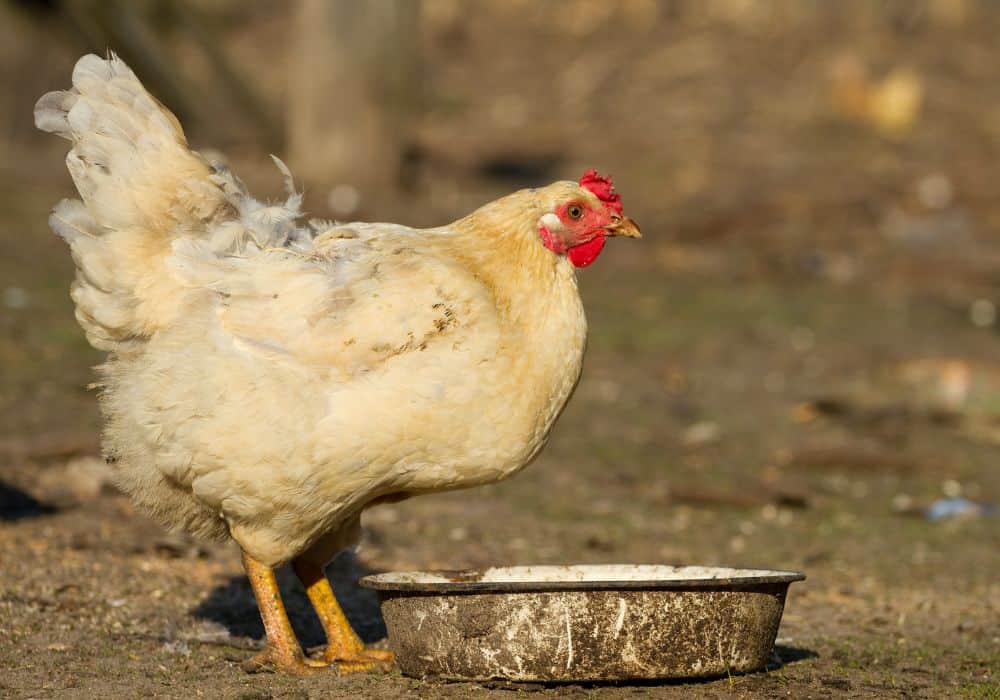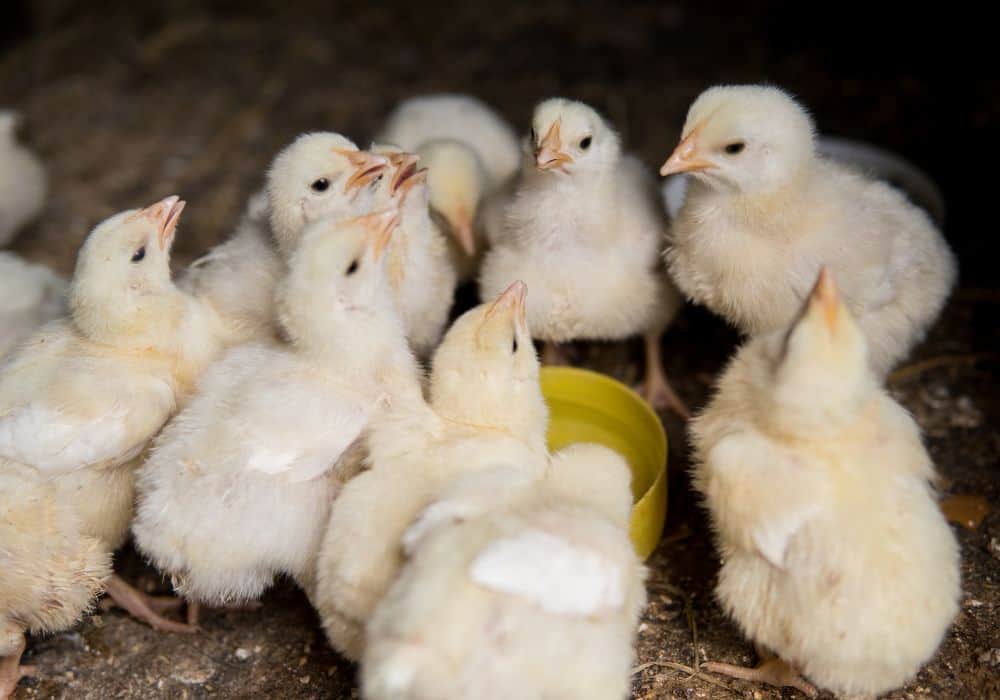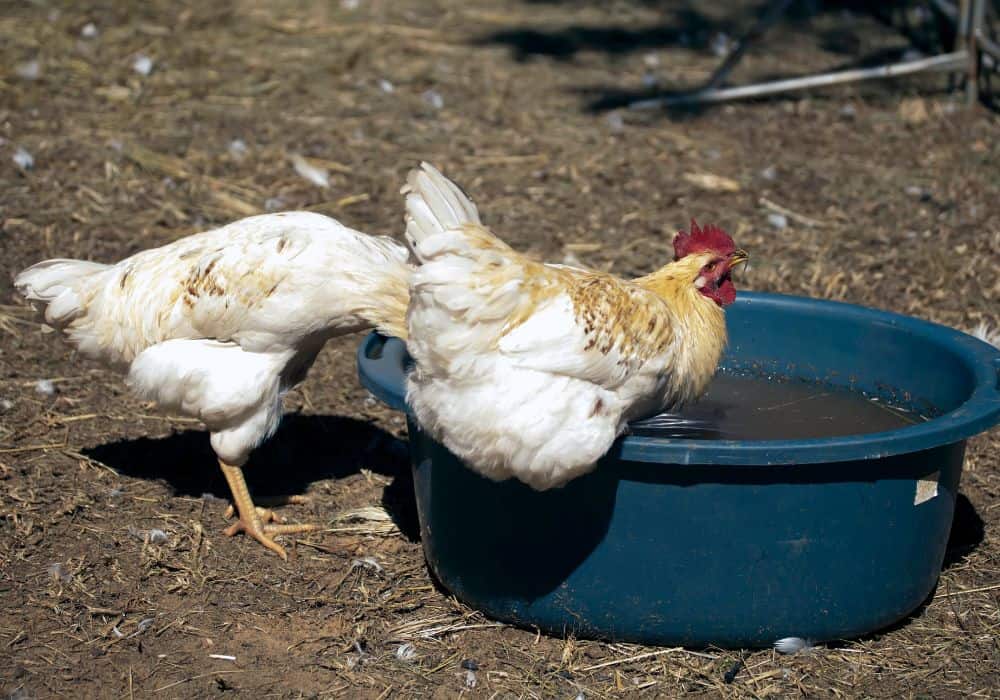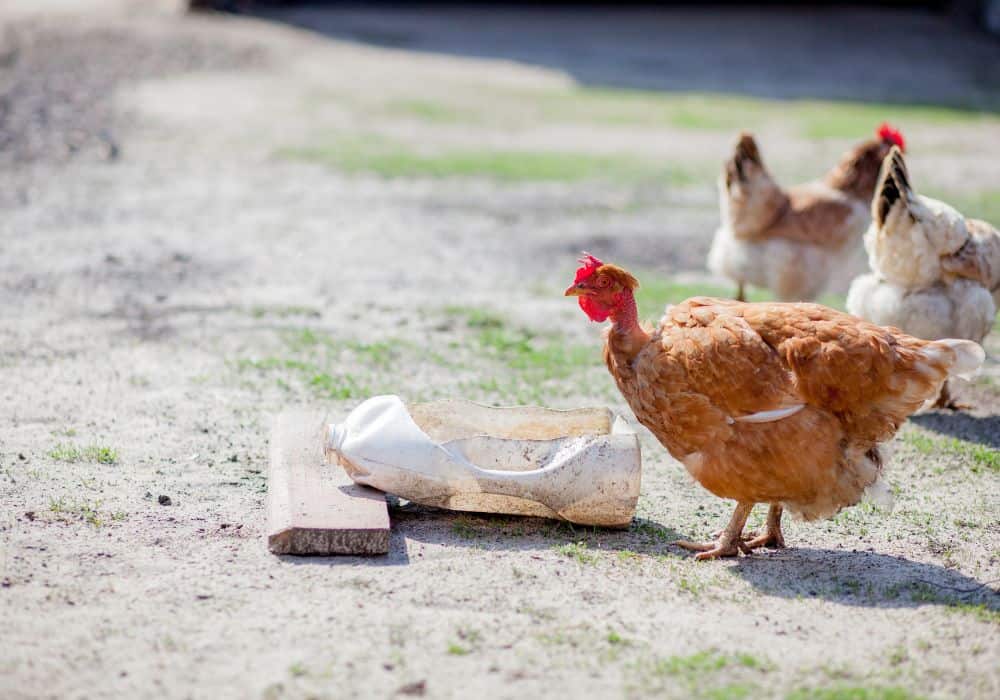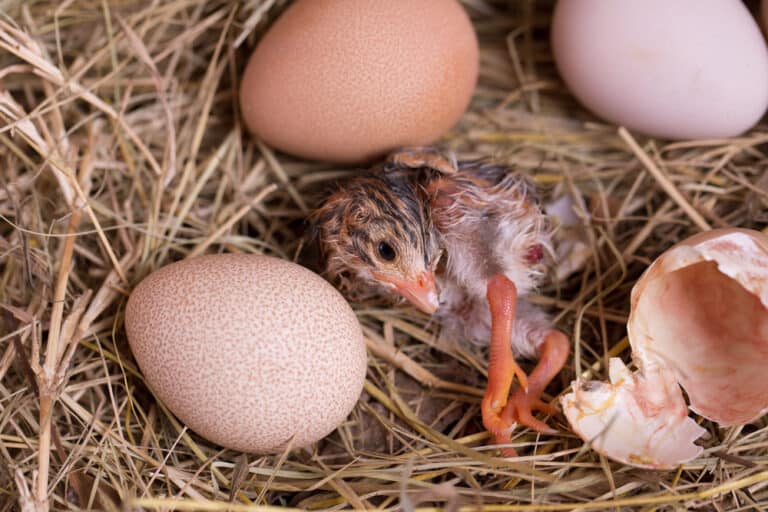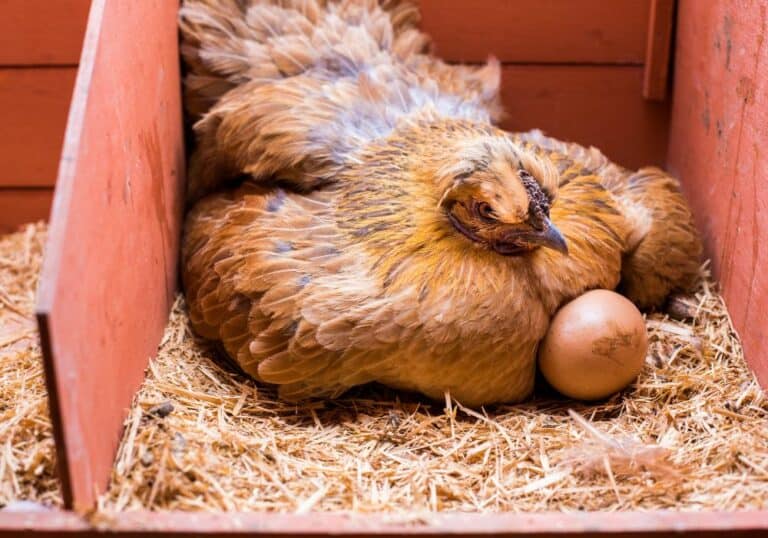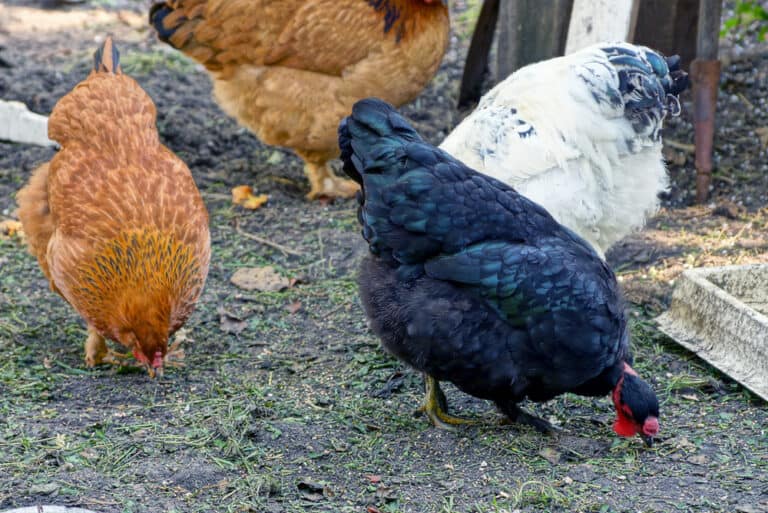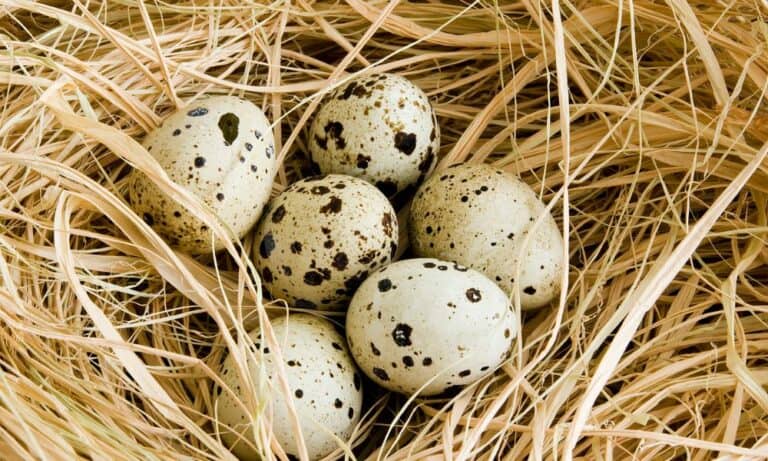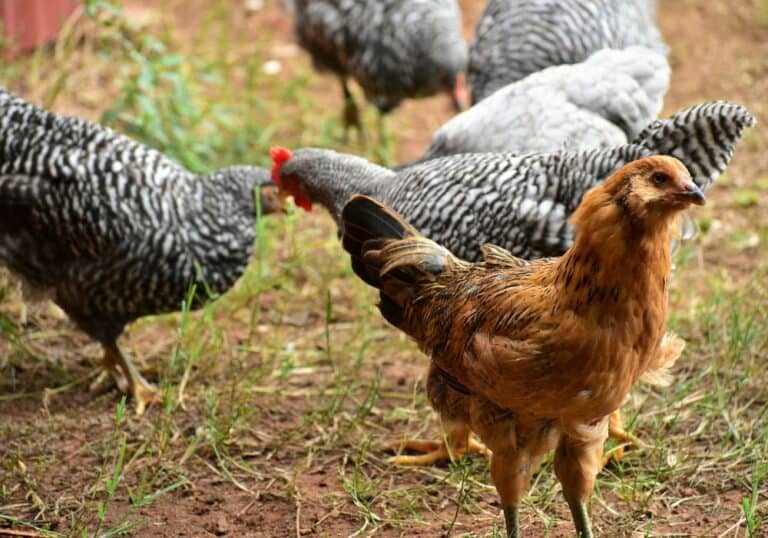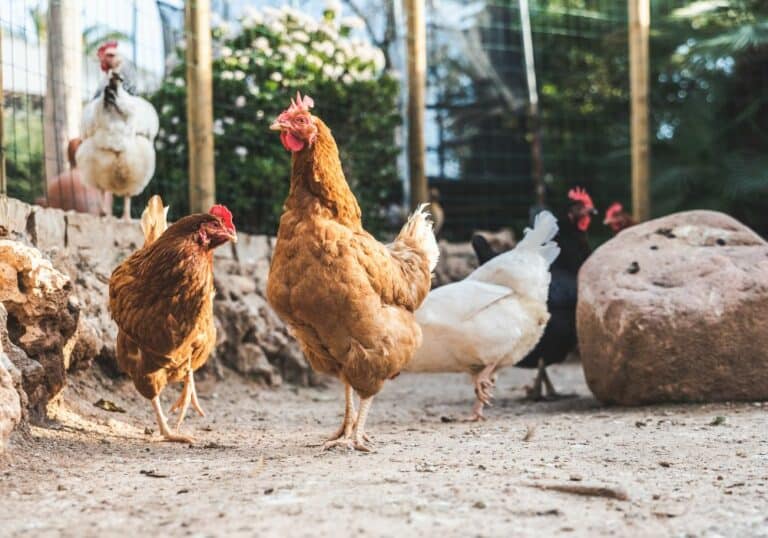The importance of water to the growth of your chickens cannot be overstated, as it helps with food digestion, waste elimination, and body temperature regulation. Not providing your flock with adequate water will lead to reduced egg production, dehydration, molting, and even death, hence the need to answer the question, how much water do chickens drink?
To maintain a healthy flock, while adult chickens require an average of one pint of water (0.5 liters) per day, the water intake of baby chicks should be proportional to 1½ – 2 times the amount of food they eat. Also, please take note of factors like the prevailing weather, size, age, and egg-laying status of the chicken, as it plays a massive part in determining how much water they drink.
If you’re new to rearing poultry or want to give it a shot soon, pay close attention to the details we’ll share in this article. We’ll answer questions about how much water you should give your chickens, discuss the benefits of water to chickens, the dangers of not giving them enough water, and solutions to when your chickens are uninterested in drinking water.
Factors that Determine a Chickens Daily Water Requirement
Naturally, a chicken’s water requirement depends on a couple of factors. This includes,
- Size
- Age, and
- Egg-laying status
Size and Age
Chickens are dependent on water for survival. While they can go days without feed, the same cannot be said for water. Hence, their water consumption depends mainly on their size and age.
While an adult chicken (26.7 inches weighing around 2.6kg) may drink a pint of water a day, a 4-day-old chick(weighing about 40 grams) will consume less than that ( approximately 340ml).
Egg Laying Status
Research has shown that the average hen increases water intake while laying eggs. So, it’s only normal that egg-laying chickens will double the water they take on the days they lay eggs. One specific reason for this increase is the metabolic stress of laying eggs. Also, remember that eggs comprise about 74% of water.
The Benefits of Water to Chickens
Water is vital to survival and deserves more attention when considering the factors that make a successful poultry farm. In this section, we’ll discuss water’s different benefits to the growth of chickens, whether for meat or egg production.
1. Transports Nutrient
Water is necessary for the digestion of food chickens eat. It achieves this by breaking the chicken’s food into digestible forms. The food’s nutrients, such as minerals and electrolytes, are then transported through the blood vessels (mainly water) through its digestive tract and, in turn, delivered to the chicken’s cells.
If chicken’s don’t get the required nutrients they need, it could lead to death, and we don’t want that for our backyard friends.
2. Prevents Heat Stress
It is no news that chickens do not have sweat glands, so how do they lose heat? They lose heat via other means, which include panting and spreading their wings. When the temperature is high, this activity can lead to heat stress. This process would get the chicken thirstier hence the increased water it ingests during hot seasons.
To ensure your chicken stays hydrated, heat-stress free, and its body temperature regulated, you must provide a generous water supply for the coop.
3. Increases Egg Production
Research has shown that an egg consists of 74% water, so chickens that lay eggs require enough water to produce healthy-looking eggs.
N.B: When a hen is deprived of water for up to 40 hours, it lays small, thin-shelled eggs. So, if you want your hens to work their magic, make provisions for a good quantity of drinking water.
4. Increases Chicken’s Brain Power
One benefit of water to chickens people tend to forget is its role in improving a chicken’s brain power. One of the vital functions of the chicken’s brain is its coordination. So, yes, a chicken with a dehydrated brain isn’t the most effective.
Reasons Why Your Chicken Needs to Drink Enough Water
You ask, why should I endure the stress of providing my chickens with adequate water? Well, here we discuss four of these reasons.
- Sour crop
- Dehydration
- Forced Molt
- Stunted growth
1. Sour Crop
It is a yeast infection that occurs when the crop doesn’t empty itself or does it slowly, with one of the leading causes being the lack of enough water; to help soften the food in the crop.
N.B: If the condition doesn’t get immediate attention, it could start to lose weight and, even worse, die. Of course, no poultry farmer wants their birds to suffer or die of yeast infection from sour crops.
2. Dehydration
When chickens don’t get enough water, which can cause a host of problems, including death. Some signs of being on the lookout for to best identify a dehydrated chicken include;
These illnesses can be avoided if we are attentive and provide all they need to be healthy.
3. Forced Molt
This is an exercise for starving hens. When you don’t feed your hen the daily water, it could forcefully lead to molting. This process is likely to stop your hen from producing any eggs at all.
Folks who rear poultry for the sole aim of egg production should refrain from being nonchalant about the benefits of a freshwater supply for their layers as it determines the quality and quantity of eggs they produce.
4. Stunted growth
A shortage of water can impede digestion in chickens because water is needed to break down food. The unavailability of water could lead to stunted growth, especially in chicks, as they don’t get the adequate amount of nutrients needed for healthy growth.
Reasons Why Your Chickens are not Drinking Water?
Although it’s odd for a healthy chicken not to drink water, from our experience, here are some of the reasons why your feathered friends might be reluctant to drink water
- Water not being clean and cool
- Inaccessible Water and Waterers
- Bad tasting water
Let’s take a look at these reasons closely
1. Water not Being Clean and Cool
Firstly, for the same reasons, you wouldn’t take unclean water your backyard chickens wouldn’t either. They prefer water without debris or poop and won’t drink if they sense it isn’t clean. Note that these birds fancy a water temperature of 55° F and wouldn’t drink as much if it’s hotter or cooler.
2. Inaccessible Water and Waterers
Also, the position of the Waterer determines to a large extent if the chicken would drink. For instance, if the Waterer is above the chicken’s reach, the chicken may be reluctant to stretch for a drink, which could lead to dehydration, affecting the chicken’s growth in the long run.
3. Bad-Tasting Water
The final reason your chickens aren’t drinking the water you give them might be that it tastes bad. Although poultry farmers may add apple cider vinegar or supplements to their Flock’s water, we’ve found that it is best to do that in small quantities, as chickens won’t drink water infused with minerals.
N.B: choosing a waterer that works best for your coop is vital when selecting a water container because if they’re far away or too high up, our feathery friends won’t drink.
Solutions to Get Chicken to Drink Water
As a chicken enthusiast, you’re wondering about the most effective way to increase your chicken’s water consumption. Well, put your mind at ease as it’s a simple task.
1. Training
Let’s start with the chicks; getting them to drink water begins with you giving them a little assistance by dipping their beak into the water container. After that, it becomes a habit, and they can quickly locate the water whenever they are thirsty.
While the adult chicken already knows the source to get refreshed, a newly added hen may need you to show them the Waterer.
2. Adopting Syringe Feeding
When you notice one of your backyard friends isn’t getting adequate liquid, you would need to dedicate some time to that chicken and syringe feed her. While at it, exercise caution so the chicken doesn’t choke.
3. Choosing Adequate Waterers
There are four common types of waterers; the nipple waterer, gravity waterers, chicken cups waterers, and trough waterers.
The type of chicken waterers a poultry farmer adopts depends mainly on the size of your poultry. And if you have trained or would train them on how to use it, some of these waterers are more complex than others. So, you must find a waterer that best works for your Flock and use it for effective results.
4. Changing the Position of the Waterer
Maintaining the Waterer’s position in the coop is essential as you want your chickens to remember the exact position each time they need a drink, especially the baby chicks.
Also, position the water container to ensure it’s high enough to prevent dust but still positioned in a way that grants the chicken easy access. The Waterer’s position in the coop should always be under the shade.
Also, we recommend you supervise your Flock to know when they aren’t getting enough water and lend a hand.
Conclusion
Chickens are easy to care for and maintain. However, they require attention from their hydration to their feeding. So naturally, we want to ensure the birds are in good condition, starting with a clean water supply.
Water plays several roles in ensuring we have healthy livestock, so we must do the needful while keeping the process as hygienic as possible.
Let us know what you think about all we’ve discussed. Also, don’t hesitate to leave your questions in the comment section.

